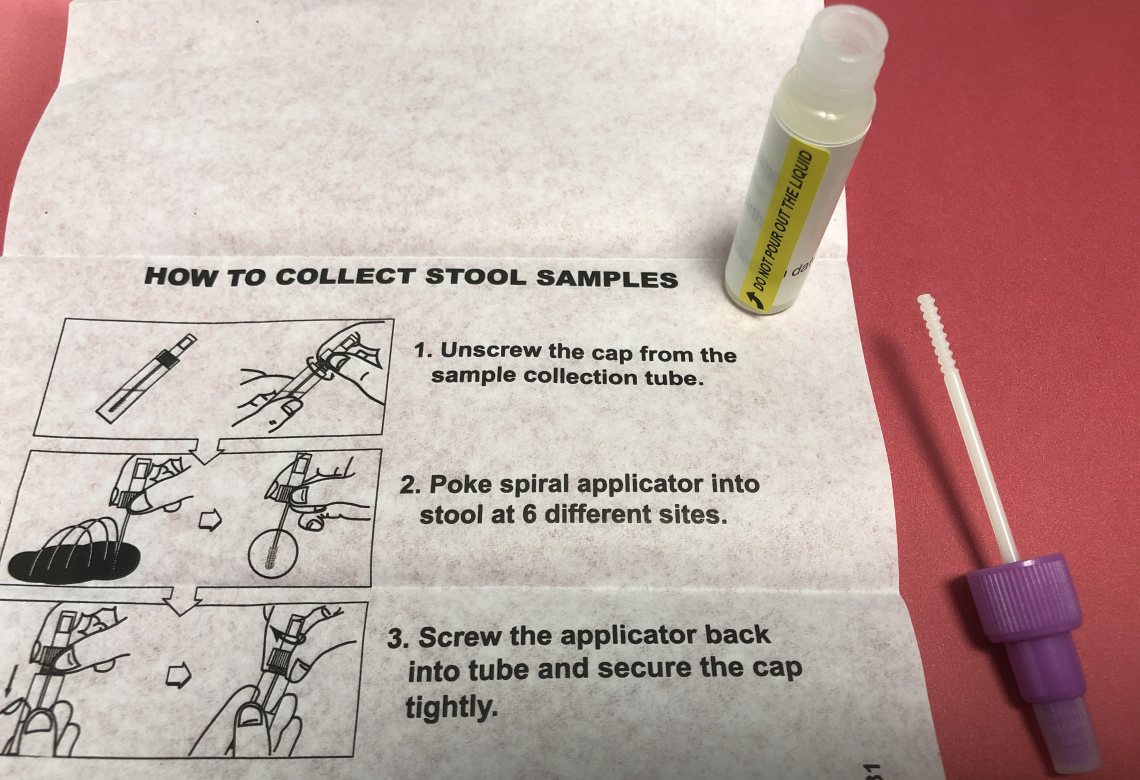Colorectal Cancer Screening (CRC)
Colorectal cancer (CRC) is the third most commonly diagnosed cancer in men and women and is the second leading cause of cancer death in the United States. Everyone between the ages of 50 and 75 should be regularly screened for CRC.
CRC starts in the colon (the large intestine) or rectum (the passageway that connects the colon to the anus). It occurs when a polyp (an abnormal growth) becomes cancerous. Often there are no symptoms. Regular screening helps find colorectal cancer at an early stage, when treatment works best.
Providence Community Health Centers (PCHC) uses the FIT test to screen for CRC in many patients.

Image Source: National Colorectal Cancer Action Campaign
Instructions
The FIT test looks for very small amounts of blood in your stool – so little your eyes cannot see it. We will mail a test kit to your home.
- You will use the stick in the kit on your stool, then
- You will then place the stick in a small bottle to preserve the sample, then
- You send it in the mail for testing. Finally, you will to mail the bottle back to PCHC. You need to mail the sample back less than 48 hours after you obtain it.

Video: How to use the kit
Background
Sometimes abnormal growths, called polyps, form in the colon or rectum. Over time, some polyps may turn into cancer. Screening tests can find polyps so they can be removed before turning into cancer. Colorectal polyps and colorectal cancer don’t always cause symptoms, especially at first. Someone could have polyps or colorectal cancer and not know it. That is why getting screened regularly is so important. If you have symptoms, they may include
- Blood in or on your stool (bowel movement).
- Stomach pain, aches, or cramps that don’t go away.
- Losing weight and you don’t know why.
Treatment
If the FIT test determines that you have blood in your stool, the next step is to get a colonoscopy. In a colonoscopy, a doctor looks at the inside of your colon and rectum with a long, flexible tube about the width of a finger with a light and small video camera on the end. It’s put in through the anus and into the rectum and colon.
For early colon cancers, most polyps can be removed during the colonoscopy. For later stage or more complex cancers, more complex surgery may be required. Your provider can help you answer any questions you may have.
More Information
- US Preventative Services Task Force: https://www.uspreventiveservicestaskforce.org
- Center for Disease Control:
https://www.cdc.gov/cancer/colorectal/ - American Cancer Society
https://www.cancer.org/cancer/colon-rectal-cancer.html
Contact Information
375 Allens Ave. Providence, RI 02905 | Find Clinic
Phone: 401-444-0400 | Contact Us
